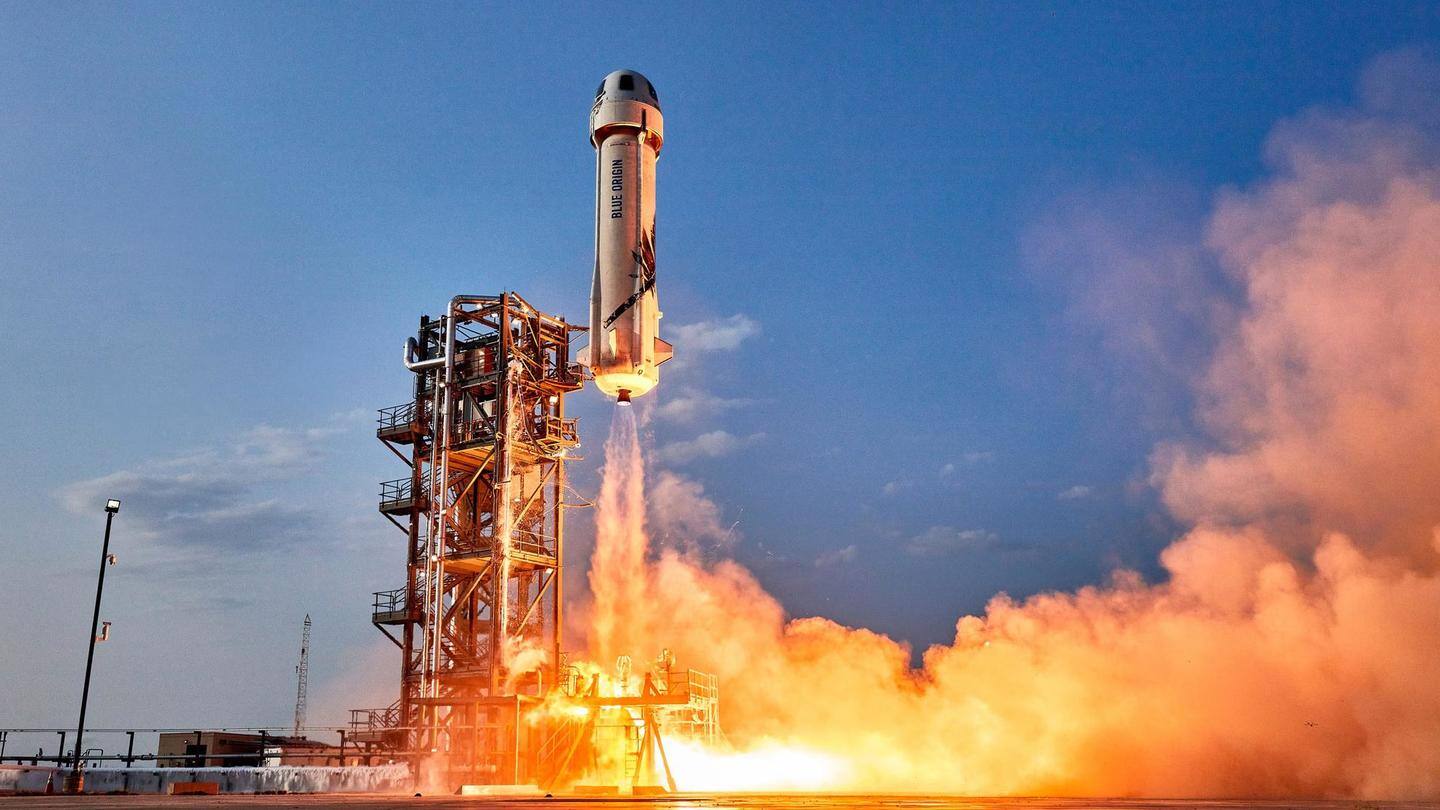
Jeff Bezos-owned Blue Origin rocket crashes; no people were onboard
What's the story
Jeff Bezos-owned space travel company Blue Origin has experienced its first launch failure.
An uncrewed New Shepard rocket crashed back to Earth, shortly after it took off from the company's launch site in West Texas, USA on Monday.
The rocket contained a capsule carrying three dozen experiments. New Shepard's emergency escape system parachuted the capsule to safety.
Details
About the ill-fated rocket
This was the 23rd flight for the New Shepard program and the ninth one for this particular rocket-capsule pair.
It was supposed to take off two weeks ago but was grounded because of bad weather.
The accident occurred when the rocket was traveling at a speed of 1,126km/h at an altitude of roughly 28,000 feet. It somehow managed to reach around 37,000 feet.
Error
What was the mishap like?
At 1.04 minutes after New Shepard's launch, yellow flames erupted from the booster's engine and it began to tilt.
Then, the emergency abort system propelled the experiment-carrying capsule away from the failing booster.
It safely landed in the Texas desert thanks to the timely deployment of parachutes. Blue Origin claimed that no one on the ground was injured by the mishap.
Twitter Post
Here's a video of the mishap
Booster failure on today’s uncrewed flight. Escape system performed as designed. pic.twitter.com/xFDsUMONTh
— Blue Origin (@blueorigin) September 12, 2022
Purpose
What do the New Shepard rockets do?
The New Shepard flights are meant for short up-and-down trips to around 100km above the Earth's surface so that tourists can experience a few minutes of weightlessness.
Celebrities including Bezos and William Shatner (of Star Trek fame) have climbed aboard.
Scientists also use New Shepard flights as an economical means for conducting experiments in near-zero gravity. For now, New Shepard vehicles have been grounded.
Artemis 1
NASA is also facing launch problems
The Artemis 1 is an uncrewed test flight of NASA's Artemis program. It aims to send astronauts back to the Moon after 50 years.
However, the program faces many hurdles, with two launch attempts already being aborted.
Now, engineers have completed the necessary repairs and the Artemis 1 Space Launch System (SLS) rocket is scheduled to take off on September 27.